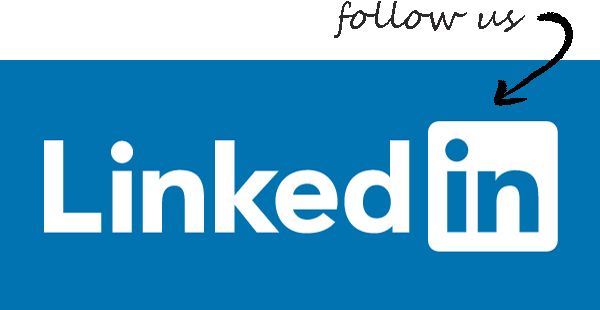
 Web Content Display
Web Content Display
News
 Web Content Display
Web Content Display
Alumni Stories: Tomasz Ćwiąkała
"I think the most important thing is to combine your private life with your professional life and make your professional life work for you. But I see from the journalistic industry and from my own experience that this isn’t easy. This profession requires a lot of work at weekends, at various unusual times. Sometimes it’s difficult to square it with your private life. Therefore, if you make it, it is a success."
Name and surname: Tomasz Ćwiąkała
Place of residence: Warsaw, Poland
Position: commentator, sports journalist
Degree subject at the Jagiellonian University: Portuguese philology
What is your best memory from your college days?
It is hard for me to pinpoint one such moment. However, I have very fond memories of my time at university, largely thanks to the people I studied with and the people who taught me. Before I became a student I had a slightly different idea about professors than what I actually saw when I came to college. They turned out to be very nice and positive, and we had a very casual relationship with them, which is precisely why I feel that my education was so fruitful.
A good memory was going to class together or learning languages over coffee somewhere in one of the cafes around the Market Square in Cracow.
I have less fond memories of exams in Portuguese literature which was a very hard subject and required an huge amount of effort, as did Latin classes.
In general, though, I have very good memories of my college days and I would recommend anyone to study Romance languages at the Jagiellonian University.
You chose Portuguese for your major. Was it because of your fascination with Brazilian and Portuguese football?
Exactly. My original plan was to study Spanish, but I didn’t get accepted. It was very difficult to get in, and I was literally a few points short of the mark. I treated Portuguese as my backup plan. Later, when I was at university, I decided that even if I got accepted into the Spanish programme in the second or third try, I would continue with Portuguese studies because I could learn the language perfectly. I had always associated Portuguese with football.
From the beginning, my goal was sports journalism. However, I chose language studies because I wanted to gain the additional advantage of knowing a less popular language very well. So I learned a language which is quite exotic in Poland but can be used almost every day in football.
What I liked about my studies was that while there were some courses such as Portuguese History and Brazilian Literature I felt negative about, they turned out to be fantastic. So, I took away a lot from them.
My next question is about the turning point that made you go into journalism. But I understand that was not a single moment, but more of a dream that you had had for years?
At the very beginning, when I came to university, I gave myself a few months to master spoken Portuguese. And when I did, I started doing interviews with Brazilian footballers and publishing them on various websites. That was a turning point in my life.
As far as my career goes, there were a few such breakthroughs. Certainly one of them was the move from Cracow to Warsaw, then the World Cup in Brazil, where I could use the language, then the move to Television Eleven on Weszło website and recently the move from Eleven to Canal Plus.
In your case, your college education was instrumental in advancing your career.
Yes. The first language was, of course, Portuguese and the second was Spanish. Today, I use Spanish every day, at least for 2 hours. I listen to podcasts, read articles, prepare interviews; in addition to being a sports commentator, I host a series of interviews with former football players.
Of course, I often use Portuguese as well. I have done quite a few interviews with Brazilians and I have noticed that, while it is generally difficult to do an interview with players from France, Germany or England, the attitude of Brazilians is very positive once they hear someone speaking their language, and that goes especially for Brazilian players in the Polish Premiere League who rarely get to hear Polish people speak Portuguese.
What does Tomasz Ćwiąkała’s everyday life look like during the season?
Oh, there is no rule. Every day I spend 1.5 - 2 hours listening to podcasts, specifically on the Spanish radio. This is a way for me to prepare for work, to be up to date with everything that is happening in the Spanish league. On top of that, I read a lot of articles and watch a lot of matches. In our day and age, there is an oversupply of that: you can watch a few games every day. Of course, you have to be selective. There are also weeks when I am away. These particular days are crazy and more difficult to plan.
Do you have any particular memory associated with your work?
Certainly, the World Cup in Brazil was a great experience, each high-profile match I have commentated, for example, Barcelona vs Real Madrid, is something great.. Another special moment was the tribute to Johan Cruyff after his death.
Another pleasant memory was the interview with Carles Puyol. I was sent to interview La Liga ambassadors, or former players who used to play in that league. There was a rally taking place with an interview with Puyol and Carlos Morientes. Puyol asked what language the conversation would be in, and Morientes answered: He speaks perfect Spanish. I was a little confused, because I had spoken to Morientes several times in my life, but I didn’t expect such an opinion from him. It made me feel very happy.
It's always nice when I can interview Portuguese footballers, such as Jorginho from Chelsea, or Roberto Firmino from Liverpool for Her Majesty Premier League. And they also congratulated me on my Portuguese. These really are the moments when I value the years spent in college.
What are your biggest challenges right now?
I run The Legends series on Canal Plus - interviews with former footballers. There have already been a few challenges. Sometimes you have to try very hard to get an interview with a footballer. I tried to get an interview with Mario Kempes, the 1978 world champion from Argentina, for over a year, I tried to get an interview with Zico for a year and a half. And there are still a few such figures who I hope one day will say: “OK, if this guy has already written to me for the tenth time about an interview, maybe I will finally accept.” I treat this series as a challenge; I would like a really big name to appear there from time to time.
What is your definition of success?
I think the most important thing is to combine your private life with your professional life and make your professional life work for you. But I see from the journalistic industry and from my own experience that this isn’t easy. This profession requires a lot of work at weekends, at various unusual times. Sometimes it’s difficult to square it with your private life. Therefore, if you make it, it is a success.
What tips would you give to people who are only just entering the job market?
When you study linguistics, the pace of study is extremely fast. I consider this to be a great treasure. If someone gets accepted, he knows that learning is much faster than in other courses, etc. Knowledge of a language is one thing, and work is something else. You need to work effectively from the very beginning. You can’t think to yourself: I’m in my first year, so I’ll start working from the third or fourth year. You have to start gaining experience as soon as possible. Especially when it comes to journalism, because it can be difficult to make a break-through here. Also, meeting new people, getting new contacts – that helps a lot because you never know when your lucky break might come.
If someone asks me how to make a break-through in journalism, I answer: by learning foreign languages. I think that’s key. Someone who knows a lot about football, can write or speak in public and speaks a few languages will make it. At some point, they will make a break-through, because they can do something that is out of reach for other people. That's why I think the most important things are: work as early as possible, learn languages and meet people.

